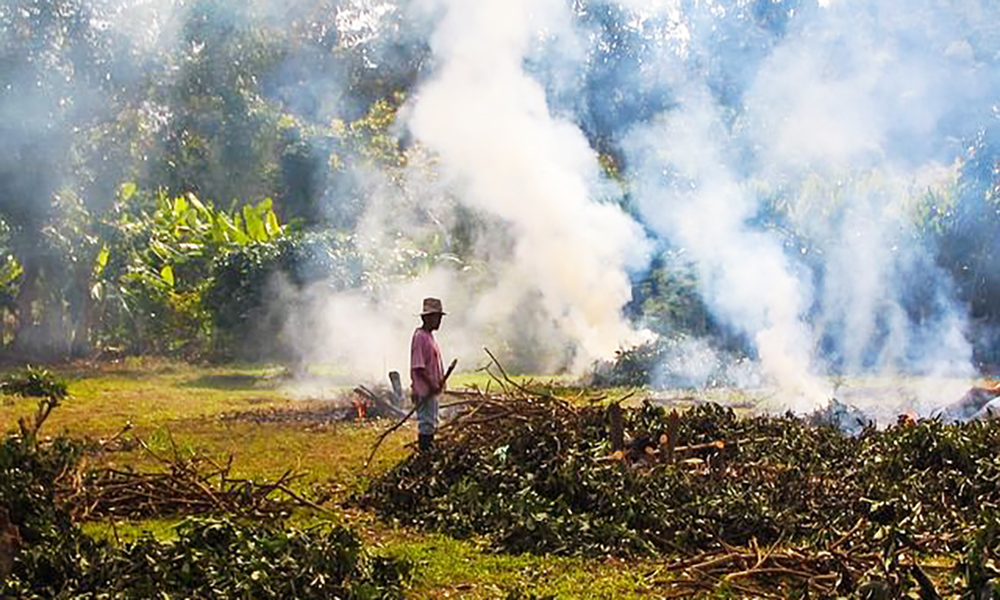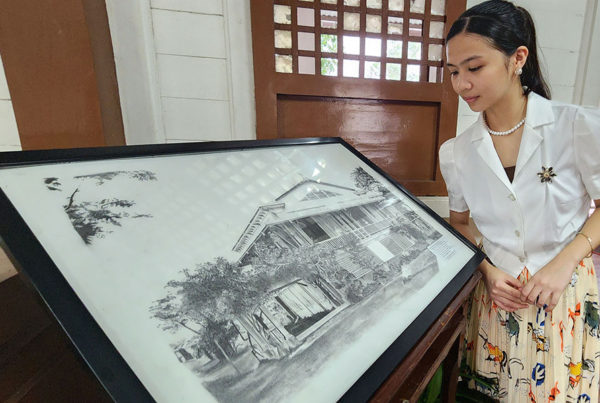
Smoke Sonata
 By Rex Catubig
By Rex Catubig
WITH Typhoon Marce hovering in the vicinity as if casing the surroundings, and its tentative winds blowing the dust off the cover of memories, unearthing the treasure of past remembrances, one discovers anew the coveted fossils of time, resurrecting the worn images of life pressed on the recesses of the mind.
And I remember. The morsel of memory assumes full flesh as nostalgia breathes life into it.
I always fell asleep on my way to Dagupan during my semestral break from college. Despite being cramped elbow to elbow on the wooden bench seat of the Pantranco bus, the wind surge from the open sides, the drone of the engine, and the rocking motion of the speeding vehicle would lull me off to slumberland once the bus hit the open highway.
From time to time, I would be roused from my doze when the bus would stop to pick up passengers and vendors of soft drinks peanuts, chicharon, or other munchies would also board and hawk their goodies in a polyphonic chorus: “Mani, bagong luto mani; psst, psst Coca, Orange, 7 up; chicharon malutong!”. But when they jumped off at some point along the highway, I would just as soon snooze back into my road trip reverie.
It’s a refreshing respite from the bustle of city life. As a woman writer succinctly wrote: “To live, one must drive away from life occasionally“. The seasonal travel to one’s hometown reinvigorates the weary spirit and keeps it poised for flight.
After the seemingly endless travel, I would then really awaken and know that we were near Dagupan when the bus would drive into the narrow interior highway framed by bouffant crowned mango trees, and cut through a diaphanous swath of wafting smoke whose piquant scent would caress my nose. “Manpapasob iray mangga pian ombunga ya”.
“Pasob” is the vernacular term for smudging–which is the practice of building bonfires under the trees, whose dense smoke would rise and envelop the branches. This is an old folk convention to induce flowering of fruit-bearing trees, mangoes in this case.
It was this robust burning smell that would cling to my being, leave an after-scent, and linger on in my mind even as I reached my destination.
Alas, there are no more picturesque mango trees that line and shade the highway. They had been cut, casualties in the road widening project. While a few trunks had been left protruding from the shoulder of the concrete road, they posed a safety hazard, instead of memorializing the beauty of their past. The diaphanous smoke that rolled out like a veil onto the road in a surreal moment is now but a vanishing image in one’s fading memory.
Years hence, I would come home when it was again the season for burning– leaves, twigs, fallen branches–but the bonfires this time were not meant to induce flowering, but rather, to dispose of detritus left by a typhoon’s temper tantrum. The once ritual of growth had become a ritual of death.
As the bonfires burned everywhere, the shroud of smoke and its woodsy scent wrapped itself around you, clinging on your consciousness, stoking fear that in one’s old age, one could end up like some smoked meat.
Tragically, the romance of ethereal smoke’s fanciful memory had been overcome by something frightful in the context of growing old. The horrific smoke of cremation insinuates itself menacingly. The dreamscape had turned into a nightmare escape.
It’s a given that as twilight draws near in one’s road journey, smoke blurs its own sentimental origin, dissolves into a murky picture, and leaves but a smudge and evanescent scent of wispy memories.
It’s when smoke gets in your eyes and you shed a tear as the mind drifts into forgetfulness.









